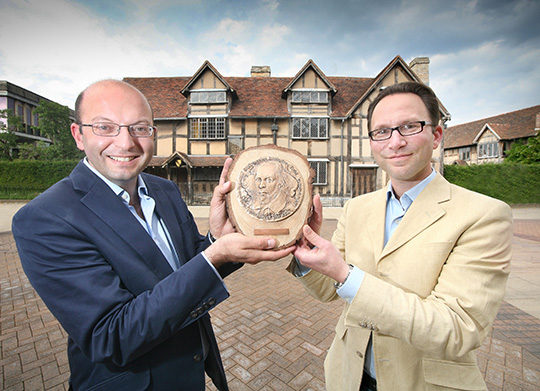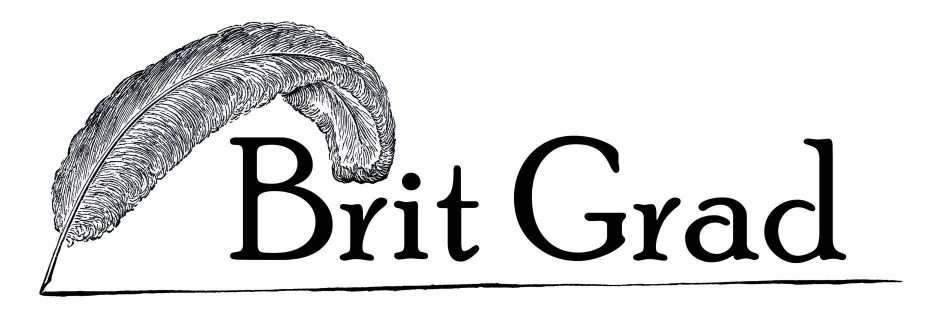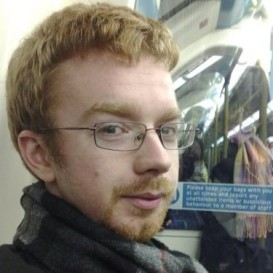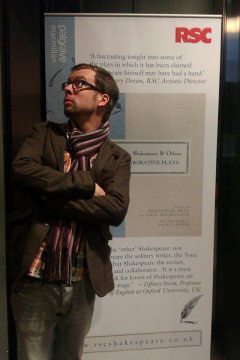
We are pleased to introduce another dynamic duo: Dr Paul Prescott, Associate Professor at the University of Warwick, and Dr Paul Edmondson, Head of Research and Knowledge at the Shakespeare Birthplace Trust.

Dr Prescott received his MA and PhD from the Shakespeare Institute. He is a Trustee of the British Shakespeare Association and the Associate Director of the postgraduate program Global Shakespeare. He has taught and acted across the globe, and, in 2010, Warwick awarded him a Commendation for Teaching Excellence. Prescott has edited for the Shakespeare Bulletin and Internet Shakespeare Editions, served as Academic Associate on Teaching Shakespeare: Online Professional Development, and co-organised ‘Acting Against the Grain: Non-Traditional Shakespeare’ in Stratford-upon-Avon.
Prescott has written numerous reviews, essays, and books, including Reviewing Shakespeare: Journalism and Performance from the Eighteenth Century to the Present (Cambridge, 2013). He and plenaries Erin Sullivan and Paul Edmondson spearheaded A Year of Shakespeare: Reliving the World Shakespeare Festival (Bloomsbury, 2013), and he wrote a chapter for the forthcoming Shakespeare on the Global Stage: Performance and Festivity in the Olympic Year (Bloomsbury/Arden, 2015), which he also edited with Sullivan.

Dr Edmondson earned his MA and PhD at the University of Birmingham and is currently an Honorary Fellow at both the Shakespeare Institute and the Society for Teachers of Speech and Drama. He co-edits Penguin Shakespeare and Palgrave Macmillan’s Shakespeare Handbooks. On top of directing the Stratford-upon-Avon Poetry Festival, Edmondson is Chair of the Hosking Houses Trust, a Trustee of the Rose Theatre Trust, and an Associate Minister in the Church of England. He has given lectures on Shakespeare around the world.
Edmondson has written on a variety of topics, such as Christopher Marlowe and the Brontës. His books on Shakespeare include Shakespeare Beyond Doubt: Evidence, Argument, Controversy (edited with Stanley Wells, Cambridge, 2013), Twelfth Night: A Guide to the Text and Its Theatrical Life (Palgrave, 2005), and Shakespeare’s Sonnets (with Wells, Oxford, 2004). Shakespeare (Profile Books, 2015), The Shakespeare Circle: An Alternative Biography (Cambridge University Press, 2016), and several poetic commissions are forthcoming.
Paul and Paul will be discussing their epic project Shakespeare on the Road. They celebrated Shakespeare’s 450th birthday by visiting more than a dozen Shakespeare festivals across the United States and Canada.




